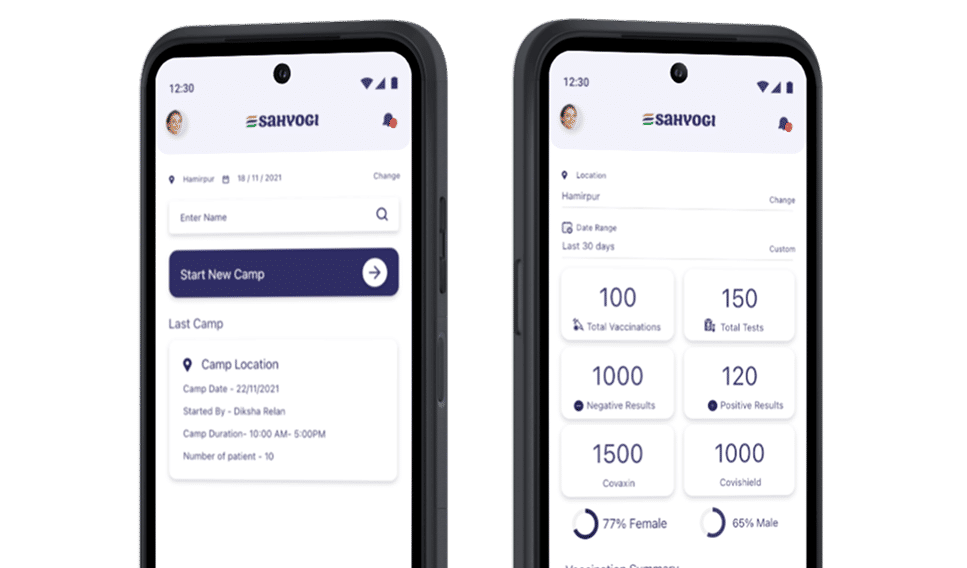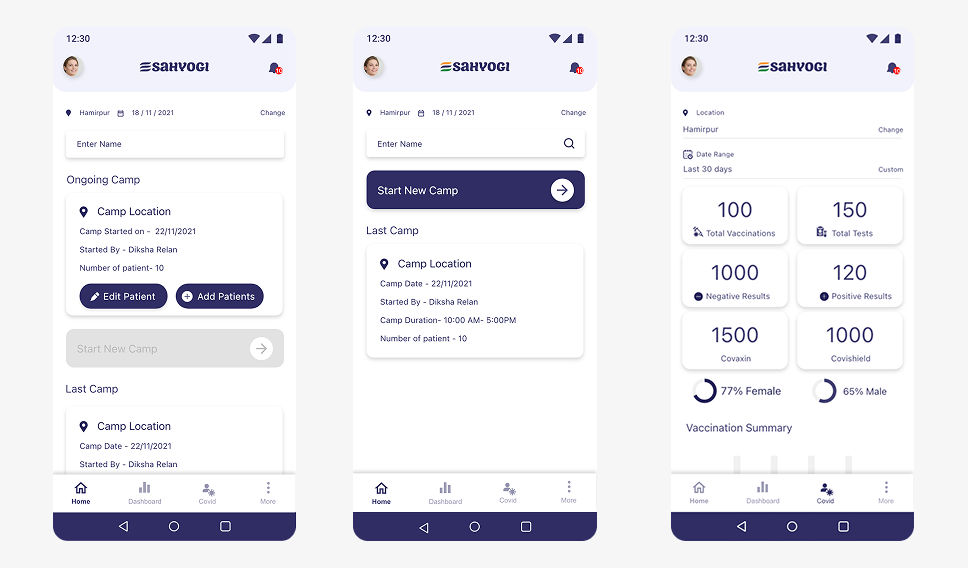
Asptal is a mobile-first application designed to streamline data collection and reporting during mobile health camps in rural Himachal Pradesh,India. It supports the Asptal-Sansad Mobile Swasthya Seva, an initiative led by Union Minister Anurag Thakur to bring primary healthcare to over 5 districts, 800+ panchayats and over 6400+ villages.—the data collection and reporting process remained outdated, fragmented, and inefficient.
I led the product’s UX design to help transition outdated, paper-based workflows into an intuitive digital experience for field medical teams.
Health workers recorded patient data on paper during each camp, summarized the details in Excel sheets, and sent reports monthly through WhatsApp. This system made it extremely difficult to track individual patient histories, analyze trends, or generate consolidated reports in real time. Delays and inconsistencies affected both operational efficiency and overall health impact assessment.
Key challenges we identified:
This fragmented system created a gap between field data collection and high-level decision-making. Our goal was to bridge this gap through an intuitive, digital platform that supported real-time insights and seamless reporting, all while being accessible to rural healthcare teams.

We started with a tightly focused MVP to solve the most pressing pain points around data collection and reporting in health camps. The goal was to build a product that delivered high utility from day one, while setting the stage for future growth.
In-scope for MVP:
Deferred for future iterations:
This phased scope helped us deliver quickly, test thoroughly, and evolve the product based on real user needs. We designed a mobile-first application focused on simplifying healthcare data collection and reporting for rural field operations. The app was optimized for real-world use by healthcare workers with varying levels of digital fluency and often working in low-connectivity zones.
Key features included:
This solution helped unify fragmented processes into a single, intuitive platform that supports both data input and decision-making.


The Asptal app was deployed across 17 mobile health units and is now in regular use across 800+ panchayats in five districts. Its adoption significantly reduced manual reporting time and improved data accessibility for all stakeholders.
Measured outcomes:
The simplified user interface and data visualization tools empowered field teams to work more efficiently, while enabling administrators to gain a broader view of healthcare activity and outcomes.

With a successful MVP rollout, we identified future features and upgrades to extend the app’s utility and scalability. These enhancements will support more complex workflows and improve inclusivity and data quality.
Upcoming improvements:
These additions will make the platform even more robust and adaptable to on-the-ground realities in rural healthcare delivery.
We built and tested interactive prototypes using Adobe XD, walking users and stakeholders through key flows and collecting feedback through informal usability testing sessions. This iterative approach helped us fine-tune the product based on real-world needs.
Key takeaways from testing:
Incorporating this feedback helped improve the final design’s usability and ensured alignment with user expectations and field conditions.
